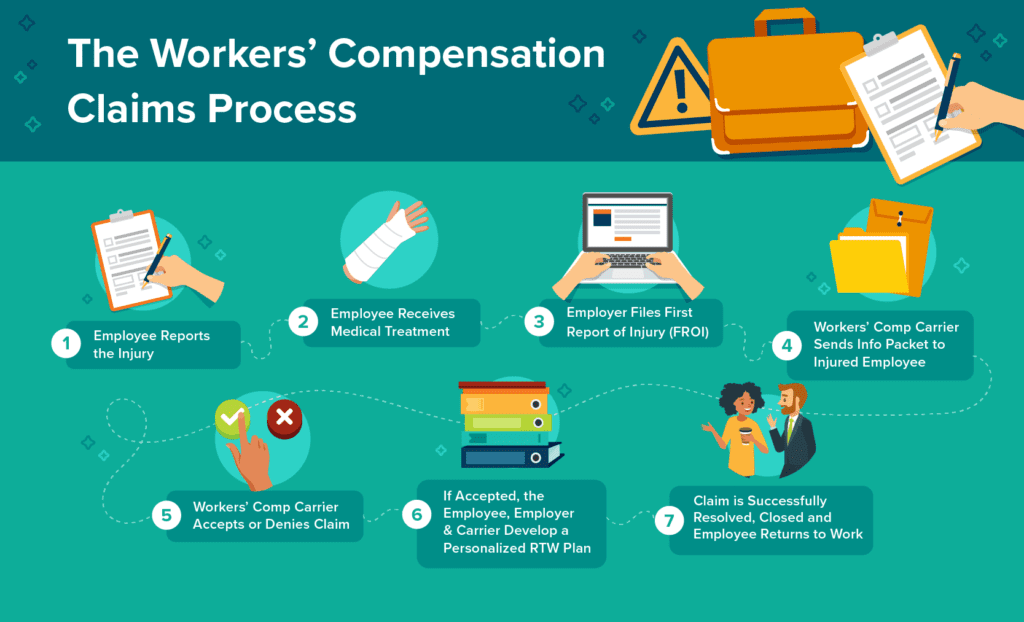Navigating the maze of workers’ compensation claims can be daunting. Whether you’re dealing with an injury or illness related to your job, understanding the process and knowing your rights can make all the difference. Here’s a guide to help you steer through the complexities of workers’ compensation with confidence.
Understand Your Rights and Responsibilities
The foundation of a successful workers’ compensation claim is a solid understanding of your rights and responsibilities. Knowing what you are entitled to and what is expected of you will set you on the right path from the beginning. For expert guidance on navigating this process, consider resources as Golden State Workers Compensation, which can provide valuable insights and support tailored to your needs.
Did you know? Workers’ compensation laws vary significantly from state to state, so it’s crucial to familiarize yourself with the specific regulations that apply in your jurisdiction.
Key Rights to Remember:
- Medical Treatment: You have the right to receive necessary medical care for your work-related injury or illness.
- Compensation for Lost Wages: If you are unable to work due to your condition, you are entitled to compensation for lost income.
- Job Protection: Your job should be protected during your recovery period, though there may be exceptions based on the severity of your condition.
Responsibilities Include:
- Reporting the Injury: Notify your employer about your injury or illness as soon as possible. Failing to do so promptly can jeopardize your claim.
- Following Medical Advice: Adhere to your doctor’s recommendations and treatment plans to support your claim and aid in your recovery.
Document Everything
Thorough documentation is your best friend when filing a workers’ compensation claim. Keeping detailed records will support your case and help avoid unnecessary delays.
Interesting Fact: According to a study by the National Council on Compensation Insurance, claimants who provide comprehensive documentation are more likely to receive quicker settlements.
What to Document:
- Injury Details: Record the date, time, and circumstances of the injury. Take photographs if possible.
- Medical Records: Keep copies of all medical reports, bills, and communications with healthcare providers.
- Work Records: Maintain a record of missed workdays and any related correspondence with your employer.
Pro Tip: Use a dedicated folder or digital tool to organize all your documents systematically. This can save time and reduce stress during the claims process.
Seek Legal Guidance
While some workers may choose to handle their claims independently, consulting with a workers’ compensation attorney can significantly enhance your chances of a successful outcome. Legal professionals can navigate the complexities of the system and advocate on your behalf.
Fun Fact: Many workers’ compensation attorneys offer free consultations, allowing you to gauge their expertise without committing financially.
Benefits of Legal Assistance:
- Expertise: Attorneys understand the intricacies of workers’ compensation laws and can provide valuable guidance.
- Negotiation Skills: They can negotiate with insurance companies to ensure you receive a fair settlement.
- Appeal Support: If your claim is denied, an attorney can help you appeal the decision effectively.
Considerations: When choosing an attorney, look for someone with experience in workers’ compensation cases and a track record of success.
Be Prepared for the Claims Process
The workers’ compensation claims process involves several steps, and being prepared can help you navigate it more smoothly. Understanding each stage will enable you to manage expectations and avoid common pitfalls.
Did You Know? The average time for processing a workers’ compensation claim can vary, but the process often takes several weeks to months, depending on the complexity of the case.
Key Stages to Prepare For:
- Filing the Claim: Complete and submit the necessary forms accurately and promptly.
- Claim Review: The insurance company will review your claim and may request additional information or documentation.
- Settlement or Denial: You will receive a decision on your claim, which may include an offer for a settlement or a denial requiring further action.
Pro Tip: Regularly follow up with your insurance company or attorney to stay informed about the status of your claim.
Stay Informed and Proactive

Remaining proactive and informed throughout the workers’ compensation process is essential. Keeping track of deadlines, following up on communications, and staying engaged with your case will help ensure a smoother process. Additionally, understanding common types of workplace injuries can help you be better prepared and informed about your claim.
Interesting Note: Engaging in your own recovery and maintaining open communication with all parties involved can positively influence the outcome of your claim.
How to Stay Proactive:
- Regular Updates: Keep track of your claim’s progress and any changes in your medical condition.
- Follow-Up: Check in with your employer, insurance company, and attorney to ensure all necessary steps are being completed.
- Continued Documentation: Update your documentation regularly to reflect any new developments or changes in your situation.
By following these essential tips and staying informed, you can navigate the workers’ compensation process more effectively. Remember, while the journey may be challenging, understanding your rights, documenting thoroughly, seeking legal guidance, and staying proactive can pave the way to a successful claim.
Also Read: Mastering Workers’ Compensation: Essential Tips for a Successful Claim and Finding the Right Attorney.


















